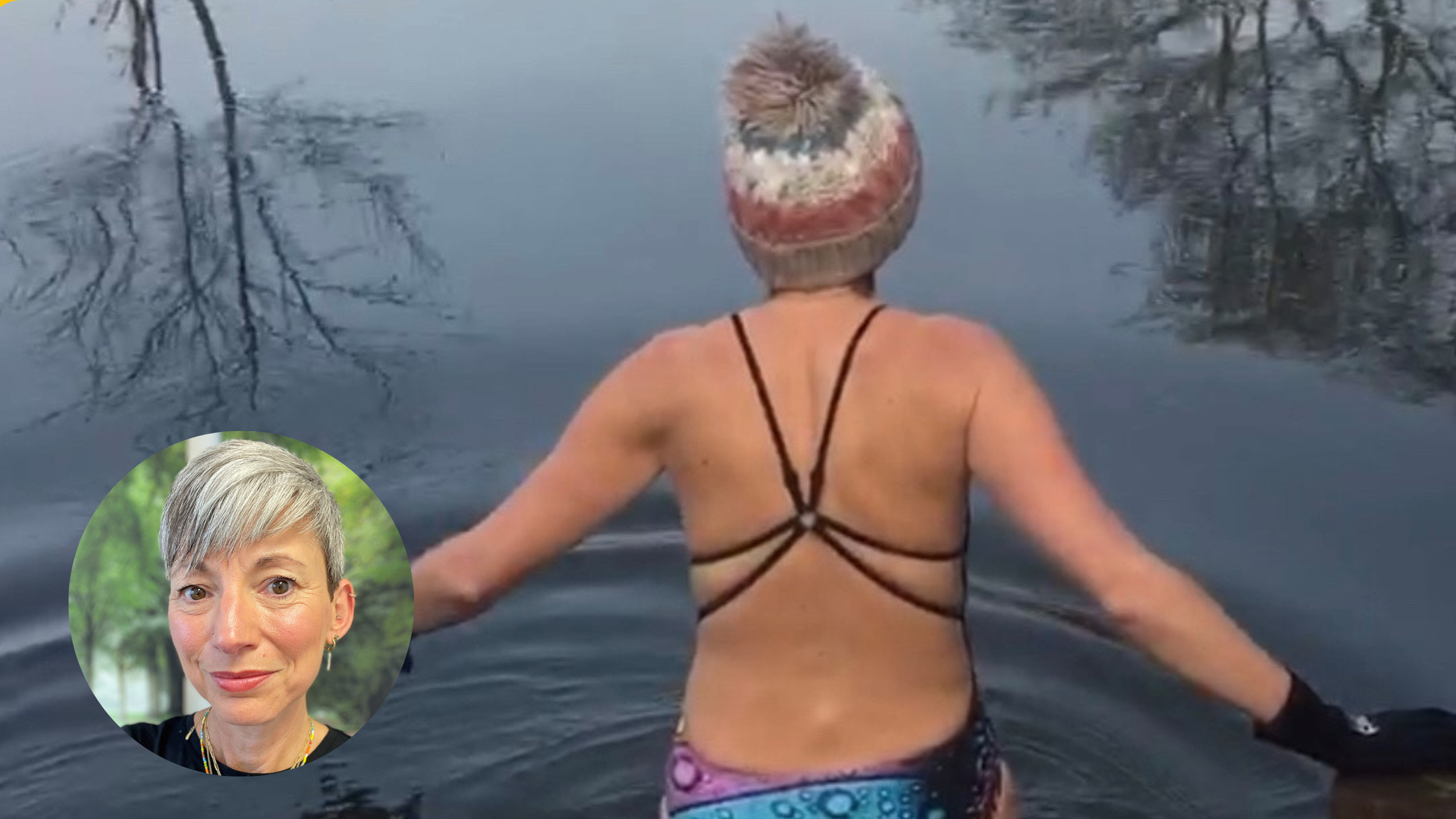Cold Water Therapy
By Natalie McIvor, Counsellor and Psychotherapist at The Eaves
My first memory of being in water was when I was 5yrs old. I can remember the feeling of freedom and just pure, sheer joy, feeling the silky touch of the water on my skin, which is incredible given that the day before I’d had a life-threatening accident. I had fallen through a glass window, inches away from cutting my main artery and resulting in emergency medical attention. Pretty traumatic for everyone involved.
There was something about being in the water that my body held onto and remembered. Bessel Van der Kolk writes about this in his book ‘The Body Keeps the Score’. My body understood the calming nature that the water had and on my nervous system, unclenching from the trauma of the day before that hot summer of 1976.
Fast forward 40 odd years and here I am, a 50 something year old woman, who on an almost daily basis practices getting into ice cold water, whether that’s in a freezing cold shower at home or in the pond, the river or if I have time I brave the wild of the sea. My body remembers that the water serves as a medicine. That whatever pain or suffering I’m experiencing, the water will provide some relief and release.
Today I’m about to go in, a couple of women are coming out all giggly with big smiles on their faces. The air temperature is 1 degree and I imagine the water is probably about the same. It will be cold, my brain will be fighting with itself, the monkey mind will be saying “no don’t go in, don’t go in it’s too cold, stay in your dry robe where it’s nice and warm” but I know, when I get in that water my heart will sore, grateful to be alive and I will absolutely lose myself in the moment. As I submerge, concentrating on slow steady breath, paying particular attention to the outbreath, I let go of any negative thoughts, any worries, anything making me feel stuck, sad, unhappy, not good enough……. I just am. I am at one with myself, nothing else matters, all I can focus on is my breathing and the beauty of the natural world around me. As a side note, this is one of the only times when I’m not thinking about my body and what it looks like (the community of swimmers around me are completely unabashed about their bodies, this is body confidence in the truest sense), I’m grateful for the extra fat covering my bones. At this time of year I’m only in for 3 minutes to avoid cold incapacitation (where your body loses heat and your swimming becomes cumbersome) because that’s all my body can tolerate. I get out and I’m freezing! Bone crunching cold I call it, my skin is lobster pink, I’m feeling invigorated as the endorphins start to flow through my body. I quickly pat myself dry with my towel as the shivers start to set-in, getting dressed as quick as possible, the pure joy of enveloping myself in my dry robe is indescribable. At this point every time after a cold water immersion I’m engulfed by the same feeling of euphoria that I experienced for the first time all those years ago. The endorphins continue to work their magic long after I get out of the water*, mother nature’s anti-depressant, a mood lifter like no other and an energy booster. I am at my most productive and creative after a swim. So this is why I’m a huge advocate of cold water therapy, it’s free, you can do it in your home and you are guaranteed to feel better afterwards.
In Scandinavia where they have only 4 hrs of daylight during winter months, they swear by winter swimming and sauna, serving as a mood booster during the long dark winters. It is claimed, although the science is still limited, that cold water swimming heightens happiness and fosters a sense of community.
*Science shows this is caused by the fight or flight response to the cold. Cortisol, a stress hormone, is released from the adrenal glands, which maintains this state for minutes to hours while a surge of beta-endorphin hormones in the brain provides pain relief and gives a sense of euphoria. This explains the post swim high that swimmers experience
Potential health benefits of cold water:
Reduces inflammation, swelling and sore muscles
Increased metabolism
Improved sleep
Mood boosting
Improved focus
Improved immune response
Increased energy levels
Relief from autoimmune disease
Hormone balance
Further reading:
www.wimhofmethod.com
www.outdoorswimmingsociety.com
www.mentalhealthswims.co.uk
The Eaves Counselling and Psychology
Natalie McIvor, Counsellor and Psychotherapist at The Eaves, is based at our Farnham practice. To find out more about Natalie, or to enquire about her latest availability, please visit her profile here
The Eaves Counselling and Psychology Ltd is a select professional body of Counsellors, Psychotherapists and Psychologists, providing high quality psychological care Monday to Saturday between 9am and 9pm from our practices in Guildford, Godalming, Farnham, Haslemere and online.
Find your practitioner in five easy steps
Are you a business owner or would like more support from your job? The Eaves’ own Employee Assistance Programme (EAP) service for small to medium businesses is easy, affordable and gives staff instant access to our large team of in-house Counsellors and Psychologists at a time and date to suit them. Contact us to find out more about our EAP service
If you need immediate support please find our list of useful contacts

